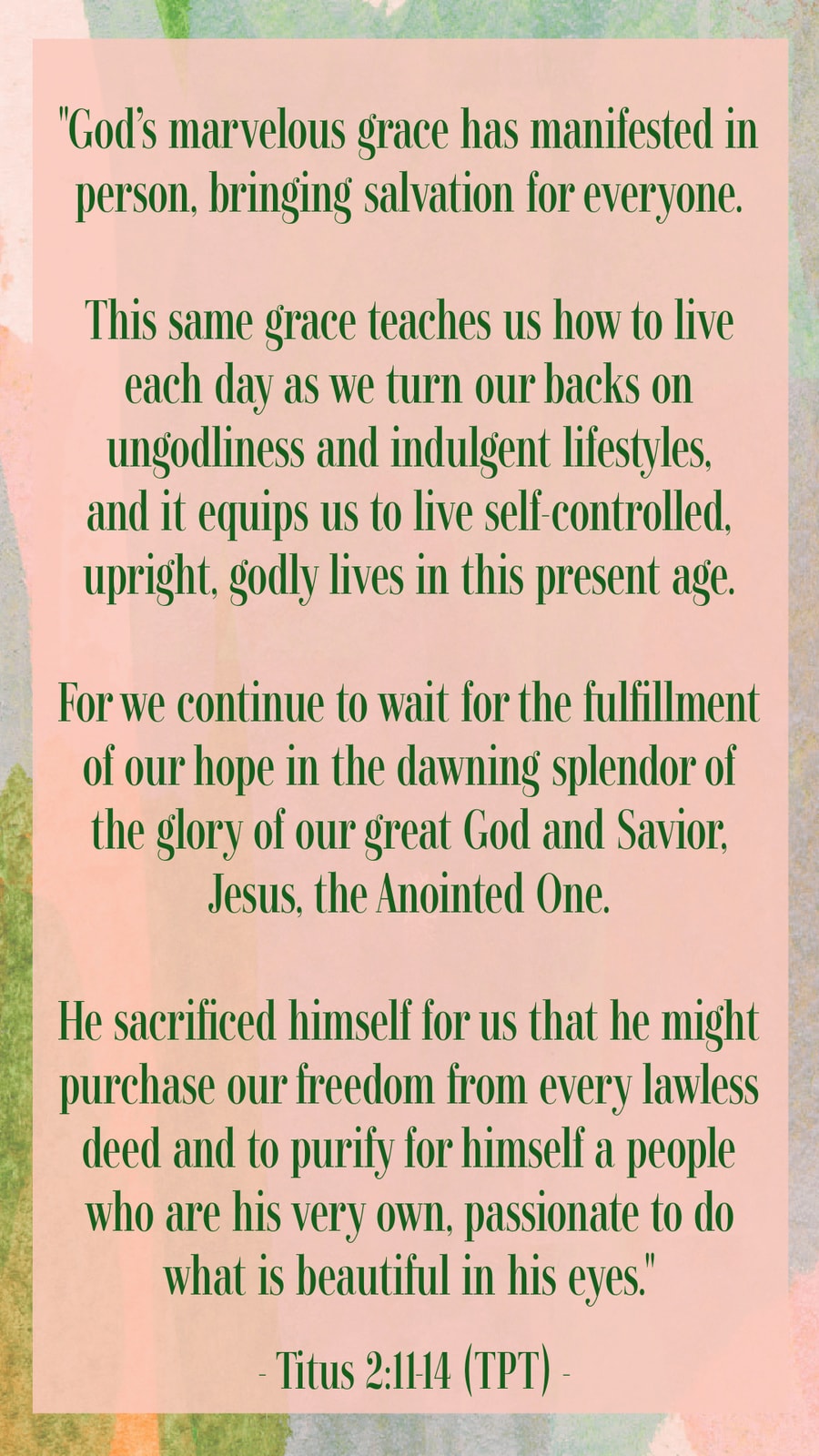I spend a lot of time thinking, reading, learning, and—yes—writing about the Enneagram. It’s not just because I’m fascinated with personality models (though I am). It’s also not because it’s currently very trendy (my interest in the model began years before Enneagram became a household word). The main reason for my continued interest is that, more than almost any other tool, the Enneagram has helped me understand myself—making peace with some parts of my personality, amending others, and growing within the parameters of who God created me to be.
As someone who identifies as a Type One (alternatively called the Perfectionist or the Reformer), I have a very strong drive to think, say, and do The Right Thing. This isn’t always bad; there’s a reason Enneagram 1’s, with our desire for excellence and our attention to detail, make reliable employees and productive citizens. We excel at accomplishing tasks and meeting expectations, and we effectively hold others accountable to a similarly high standard. Each Enneagram type reflects a core facet of God’s character, and we 1’s reflect His goodness and righteousness—which, in and of themselves, are worthy traits.

The problem arrises when we 1’s prioritize our adherence to the rules over other values. We can become so preoccupied with expectation-meeting and standard-upholding that we steamroll those around us. Our perfectionism becomes an idol for which relationships, graciousness, and nearly all other spiritual virtues are sacrificed. Ironically, in our desire to do right, we act unrightly in almost every way.
Another challenge for us 1’s is that we are VERY interested in doing the right thing. . . but it’s not always easy to determine what the “right” thing is. So we stubbornly dig into what our intuition is telling us (even if every other source is telling a different story), or we obsessively research and fact check and truth-seek around every corner and in every hidden space in an attempt to hunt down THE TRUTH that will keep us on that elusive right path. We can spend so much time chasing down the right way that we cease to act altogether.
Personally, I have taken both approaches. In some areas and at some times in my life, I have become so entrenched in my own intrinsic beliefs that I’ve refused input from any other source. . . even when, in my heart of hearts, I know that these other sources may be right. I have been so committed to feeling that I was right that I couldn’t admit to being wrong, despite abundant evidence to the contrary. At other times, I have also fallen into the obsessive truth-seeking camp, inhaling every possible resource in my efforts to arrive upon the correct conclusions that will direct my next steps.
Do you notice what is wrong with each of these scenarios? They both put a very heavy weight on MY shoulders. It is either my conscience that is guiding the way or my fact-finding (and fact interpretation) that is informing my own “Right Way.”
Praise Jesus that He offers me a third option! He doesn’t expect me to rely on what my own heart and mind are telling me to do, nor does He want me to continually turn to outside sources to inform my decisions. Instead, He takes this burden upon Himself. In coming to earth, Jesus provided the ultimate model for Rightness. He showed us the right way to live, to think, to speak, and to act. . . and when I look to Him, keeping my gaze firmly fixed on Jesus as my North Star, I will naturally fall in step with His righteous ways.
In Titus chapter 2, Paul reminds his readers that God’s grace—the same grace that brings eternal salvation—is our ultimate tutorial for living. Jesus Christ is the embodiment of grace, and in Him we have a perfect example of how to live our lives. He shows us what it looks like to turn our backs on ungodliness, and He equips us to lead upright lives. In other words, He shows us what to do and then He helps us do it.

As someone with a profound desire to act rightly, I find so much freedom in knowing Jesus is my One Right Source for understanding how to live. It relieves the pressure I feel to always figure it out on my own. And it keeps me from placing other people or ideals on a pedestal only Jesus is worthy of occupying. It also places relationship (with God and with His creation) back at the forefront, as abiding in Him—loving Him and also loving others—becomes my priority, and my actions and beliefs become secondary. With Jesus as my focus and my life source, righteousness will be the natural fruit.
The commentary in my version of The Passion translation notes that four great truths of grace can be found in verses 11-13 of Titus chapter 2: Grace is a person (“our great God and Savior, Jesus, the Anointed one”); Grace brings salvation for all; Grace educates us on how to live pure lives; and Grace brings a hope of the manifestation of Christ. . . a hope worth waiting for. Grace is a difficult concept for me to grasp or receive, but I am thankful for it—for this grace that saves me for eternity, and also from bondage to striving; grace that educates me in the right way to live; and grace that offers hope for a perfect future.
Because of the grace Jesus offers, I do not need to shoulder the burden of always getting it right. His grace covers my shortcomings and my missteps. It also offers a gentle invitation to a better way. In her book of reflections for Enneagram 1’s, Juanita Campbell Rasmus writes, “Knowing that God is awakening me to a wiser, kinder, more loving way of being offers me hope, especially when I can be blindsided by my beliefs that I am perfect and the world around me is flawed. I am made aware that I am in a constant state of becoming and that there is sufficient grace for me and those around me who aren’t doing it ‘my way.'”
The grace of Jesus is my guide and my salvation, my freedom and my hope. He gives grace for determining what rules to follow, grace for walking in righteousness, and grace for when I fall short. As it says in Hebrews 4:16, it is by grace that I can approach the Lord’s throne with confidence, to receive mercy’s kiss and gain strength in my times of weakness. His grace is my hope for today and for tomorrow and for all of eternity.